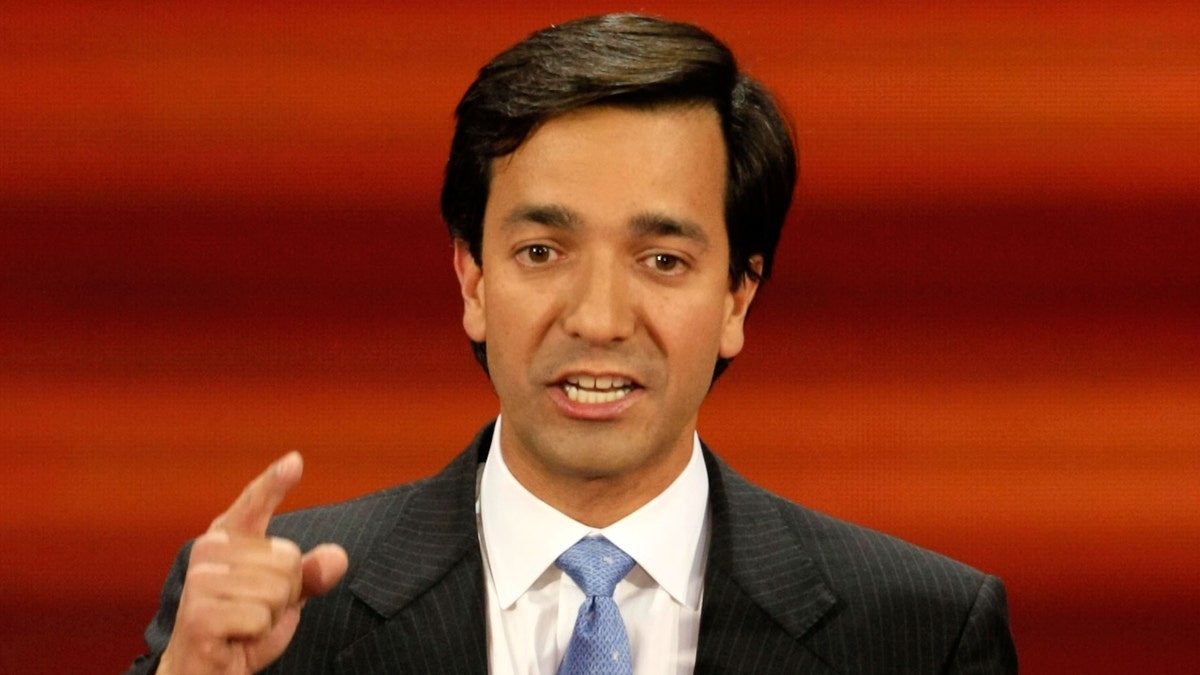
ST. PAUL, MN - SEPTEMBER 03: Resident Commissioner of Puerto Rico Luis Fortuno speaks on day three of the Republican National Convention (RNC) at the Xcel Energy Center on September 3, 2008 in St. Paul, Minnesota. The GOP will nominate U.S. Sen. John McCain (R-AZ) as the Republican choice for U.S. President on the last day of the convention. (Photo by Alex Wong/Getty Images) (2008 Getty Images)
With a soaring murder rate and a resurgence of drug trafficking through the Caribbean, Puerto Rico’s Gov. Luis Fortuño accused the United States of favoring states over territories in the drug war.
Fortuño said the U.S. had beefed up security along the country’s northern and southern border, as Mexico’s own drug war continues to rage, while security boosts in the Caribbean have become almost stagnant.
“We feel that Washington has not understood how serious our situation is,” Fortuño, a Republican, told a House Homeland Security subcommittee, according to McClatchy Newspapers. He said the U.S. government had given him no responses to his previous pleas for help.
The Drugs Enforcement Agency (DEA), the Department of Justice and other federal agencies do have law enforcemetn missions in the Caribbean. The DEA has increased the number of special agents in Puerto Rico by 14 percent, from 83 to 95, and assigned the Puerto Rico office five new special agent graduates of our Training Academy in 2012, according to Barbara Carreno, a public affairs officer for the DEA.
“When DEA, along with other federal law enforcement agencies with a security interest on the border, beefed up its resources there, it drew agents from other divisions except the Caribbean Division," Carreno said. "Indeed, recognizing that increasing our focus on the border would impact the Caribbean, we increased our staffing levels in the Caribbean Division at the same time."
In the late 1970s into the 1990s the Caribbean was one of the main conduits for cocaine and other drugs headed from South America into the United States. However, thanks to beefed up security in the region and the dismantling of the major Colombian cartels in the early 1990s, traffic through the Caribbean decreased, allowing for new routes to flourish in Central America and Mexico.
Government officials and some security experts worry that the region is once again becoming a major zone for trafficking as the U.S., Mexican and Central American governments crack down on overland routes.
We feel that Washington has not understood how serious our situation is.
“The Caribbean-South Florida route continues to be active, and although it is currently less utilized than the Central America-Mexico route, some observers have warned that activity along this route may surge once more in the future,” noted a Congressional Research Service report released last May.
The Caribbean is the gateway for almost 30 percent of the drugs entering the U.S. with 165,000 tons of drugs seized in the region in 2011 – a 36 percent rise over four years, said Texas Republican Rep. Michael McCaul, who led the subcommittee hearing.
“Research has shown that criminality related to drug trafficking has replaced political and regional conflicts as the primary source of citizen insecurity in the Americas,” the Congressional Research Service report stated. “Criminality directly associated with the illegal drug trade has also increased the prevalence of related crimes, including kidnapping, money laundering and arms trafficking.”
As is common in areas that see a spike in drug trafficking, violence in Puerto Rico has also skyrocketed. The Caribbean averages one murder every 7.5 hours, and half of them are linked to drug trafficking.
Adding to the island’s problems are widespread allegations of brutality, corruption and abuse by Puerto Rico’s Police Department (PRPD).
The ACLU recently released a report outlining many offenses by the PRPD, including the police’s failure to crack down on domestic violence and sexual assaults, the use of excessive force against civilians and a lack of adequate procedures to follow and investigate abuse accusations.
During the hearing, Fortuño also asked the U.S. to create a strategy to combat the region’s drug crime that would include filling the large number of vacancies in Puerto Rican federal law enforcement agencies and also increasing or reallocating resources to combat the issue.
“We cannot fight this war alone, nor should we be required to do so,” Fortuño said.
Follow Andrew O'Reilly on Twitter: @aoreilly84
Follow us on twitter.com/foxnewslatino
Like us at facebook.com/foxnewslatino








































